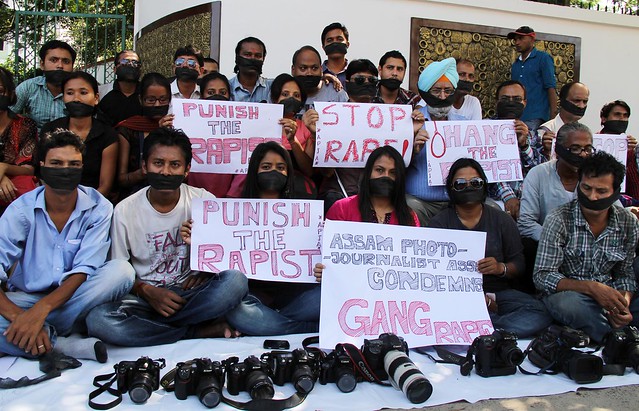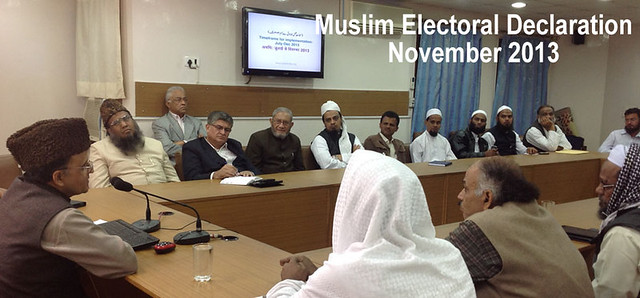By Dr. Syed Ahmed for TwoCircles.net,
Imphal: The first Chief Minister of Manipur after it attained statehood, Md. Alimuddin was remembered on the 41st foundation day of Jawaharlal Nehru University (JNU) Centre, which later developed into Manipur University (MU). The foundation stone of the Centre was laid by Md. Alimuddin on Nov. 19, 1972.
The foundation day, organized by The Pangal (Manipuri Muslim) Political Forum (PPF), Manipur and MU, was observed on Nov. 19, 2013 at the Centenary Hall of the university at Canchipur.

The function was graced by Former Minister O. Joy Singh, Dean of Life Science, MU, Professor Irabanta Singh, Chief Advisor of PPF Mohd. A.R. Khan (Retd. IAS), Social Activist R.K. Ranendrajit Singh, Former Minister Md. Alauddin, Senior Advocate and President of All Manipur Bar Association K. Mani Singh, Social Activist A.K. Aviram, President of United Committee, Manipur, Y. Nabachandra, President of All Manipur United Coordinating Committee Dr. Y. Mani Khuman, President of PPF Md. A.H. Khan and President of Jamiat-ul Ulema Hind, Manipur, Maulana Sayyid Ahmed as Presidium members.
The function was attended by large number of people from various parts of the State. Those who gathered for the function paid floral tributes at the foundation stone of the JNU Centre laid by Md. Alimuddin.
Delivering the key-note address, Spokesperson of PPF, M.I. Khan said, “The foundation of JNU Centre at Chanchipur is a historic event for the State of Manipur. The foundation of the Centre was laid by the first Chief Minister of Manipur State Md. Alimuddin. This Centre soon developed into Manipur University. Today it is upgraded as a Central University. Over these years the university has produced large number of MAs and Ph.Ds in different disciplines who are serving in various categories of services in the government and non-government institutions in Manipur and even outside the State. Sadly, the people of the State have forgotten the contributions of Md. Alimuddin. The university authorities had also failed to observe the foundation day of the Centre.
PPF had started observing the foundation day of JNU Centre at the university campus from last year after taking permission from the higher authorities of Manipur University. On this day we pay homage to the leader who had given us this institute of higher learning. We also try to remember the rich contributions made by Md. Alimuddin during his tenure as Chief Minister. Today’s generation should be grateful to Md. Alimuddin for bringing this prestigious university here at Canchipur. In the years to come we expect the authorities of Manipur University to observe the foundation day by giving half holiday as a tribute to the departed leader. We should pay respect to those leaders who had made rich contributions to the Manipuri society irrespective of their origin, religion, class, or sex.”
Former Minister and son of Md. Alimuddin, Md. Alauddin spoke on the life and works of his father.
Addressing the gathering, veteran politician O. Joy Singh expressed regret that today’s generation, including the young breed of political leaders of the state, has failed to acknowledge the contributions made by Md. Alimuddin. Recollecting the contributions of Md. Alimuddin, he said, “Md. Alimuddin, during his short stint as Chief Minister of the State, had done some significant works. The foundation of JNU-Centre at Canchipur and establishment of a medical college at Lamphel were among those works. It was Md. Alimuddin who declared Aug. 13 as Patriots’ Day as a mark of respect to Bir Tikendrajit, Thangal General and other freedom fighters who were hanged by the British. Again it was this leader who laid the foundation of the Khongjom War Memorial at Kheba Ching in 1972. For the inauguration he brought the then President of India V.V. Giri at Kheba Ching. The President was made to pay respect to those Manipuri heroes who laid down their lives at the battle at Khongjom fighting against the British soldiers in 1891.”
He further said, “Md. Alimuddin was a visionary, an astute leader and a man who had secular ideals.”
“It is quite unfortunate that the authorities of Manipur University fail to recognise the contributions of Md. Alimuddin in bringing this institution of higher learning here. It is time that the Manipur University authorities erect a memorial in the university campus in his name as a mark of respect,” O. Joy Singh added.
Md. Alimuddin was elected from the Lilong Assembly Constituency in the first Legislative Assembly election held in 1948 and became a member of the Council of Ministers taking charge of Jail and Medical departments. He was also elected in the subsequent Assembly/Electoral College/Council Elections held in 1952, 1957, 1962, 1967, 1972 and 1974.

A government led by Manipur People’s Party (MPP) was formed just after Manipur got its state-hood in 1972. Md. Alimuddin, then a leader of MPP, was made the Chief Minister (Mar. 1972 to Mar. 1973). After the mid-term election held in 1974 he again became the Chief Minister. This time his government lasted for just four months. He later became Speaker (Dec. 1974 to Sept. 1975) in the R.K. Dorendro’s government. He also served as Finance Minister (Jun. 1977 to Nov. 1979) in the Yangmaso Shaiza’s ministry.
During his tenure as Chief Minister of Manipur for just around 16 months, Md. Alimuddin laid the foundation of most of the premier institutes of the state. He inaugurated Manipur Medical College, at Lamphel in Imphal West District on May 22, 1972. In Sept. 14 that year the college was upgraded as Regional Medical College. The JNU Centre that he founded at Canchipur on Nov. 19, 1972 was upgraded to Manipur University on Jun. 5, 1980. On Oct. 13, 2005 it was converted into a Central University.
Md. Alimuddin inaugurated the Manipur Public Service Commission on Oct. 23, 1972 along with the then Governor of Manipur B.K. Nehru. He also instituted the Law Commission and Board of Secondary Education, Manipur in 1972.
Md. Alimuddin was born in 1920 at Lilong Haoreibi Turel Ahanbi in Thoubal District. He passed away on Feb. 3, 1983 at the age of 63.
























